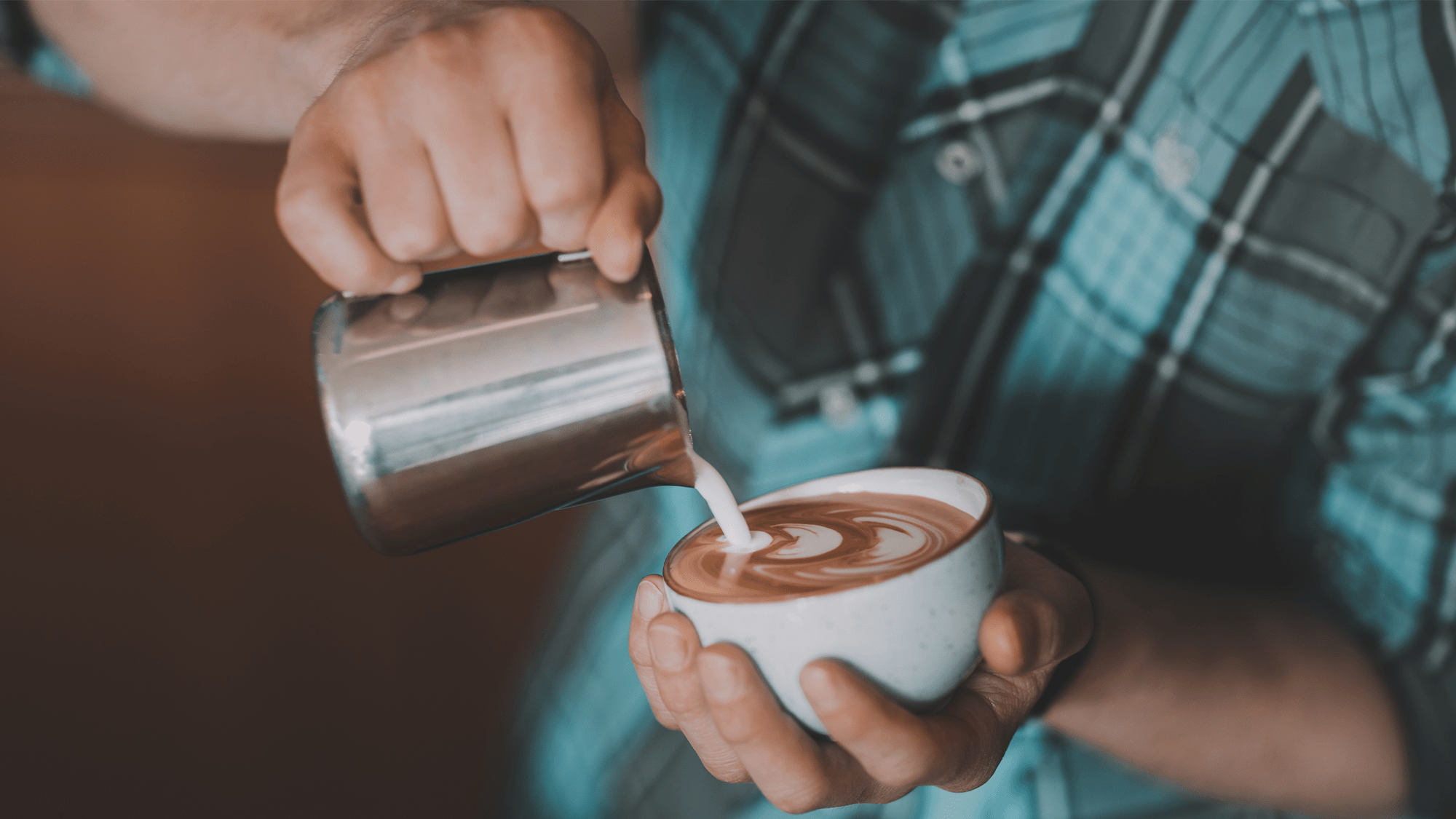

For many of us, coffee is an essential. But the research on its role in a healthy diet is still pretty confusing. It wakes most of us up so we’re ready to face the day, can lower the risk of dementia, and may increase longevity. However, too much can lead to headaches, stomach aches, an increased heart rate, and more.
One key to balancing this out may lie in what goes into the caffeinated beverage: milk. A study published January 30 in the Journal of Agricultural and Food Chemistry, finds that a milk and coffee combo might have an anti-inflammatory effect.
[Related: Coffee and tea could lower your risk of dementia.]
Inflammation occurs when foreign substances, bacteria, or viruses enter the body and inflammatory cells are released as a defense. It also happens when tendons or muscles are overloaded, like after a workout. Chronic inflammation is a symptom of diseases like Alzheimer’s disease and rheumatoid arthritis, which can cause pain, fever, and damaged joints.
In a new study, a team of researchers from the University of Copenhagen in Denmark investigated how antioxidants called polyphenols behave when combined with amino acids, the building blocks of proteins.
Polyphenols are naturally found antioxidants in lots of fruits and vegetables, tea, coffee, red wine and beer, but there are still many unknowns about the substance.
“In the study, we show that as a polyphenol reacts with an amino acid, its inhibitory effect on inflammation in immune cells is enhanced,” said study co-author Marianne Nissen Lund from the University of Copehahagen’s Department of Food Science, in a statement. “As such, it is clearly imaginable that this cocktail could also have a beneficial effect on inflammation in humans. We will now investigate further, initially in animals. After that, we hope to receive research funding which will allow us to study the effect in humans.”
The team applied artificial inflammation to immune cells to investigate what kind of anti-inflammatory effect occurs when polyphenols and proteins are combined. One group of cells received various doses of polyphenols that had reacted with an amino acid. Another group only received polyphenols in the same doses and a control group didn’t get anything.
They found that the immune cells that were treated with the combination of polyphenols and amino acids were actually twice as effective at fighting inflammation as the cells to which only polyphenols were added.
[Related: Should pregnant people not drink coffee? The answer is complicated.]
“It is interesting to have now observed the anti-inflammatory effect in cell experiments. And obviously, this has only made us more interested in understanding these health effects in greater detail. So, the next step will be to study the effects in animals,” said co-author Andrew Williams of the university’s Department of Veterinary and Animal Sciences, in a statement.
Previous research has found that polyphenols bind to proteins in beer, meat products, and milk, and beer. In a separate new study Nissen Lund tested whether the molecules also bind to each other in a coffee drink with milk.
“Our result demonstrates that the reaction between polyphenols and proteins also happens in some of the coffee drinks with milk that we studied. In fact, the reaction happens so quickly that it has been difficult to avoid in any of the foods that we’ve studied so far,” said Nissen Lund.
More work is needed on the major advantages of polyphenols and the team’s next steps include figuring out how to add the right quantities of polyphenols to foods to achieve the best quality.
“Because humans do not absorb that much polyphenol, many researchers are studying how to encapsulate polyphenols in protein structures which improve their absorption in the body,” said Nissen Lund. “This strategy has the added advantage of enhancing the anti-inflammatory effects of polyphenols.”
